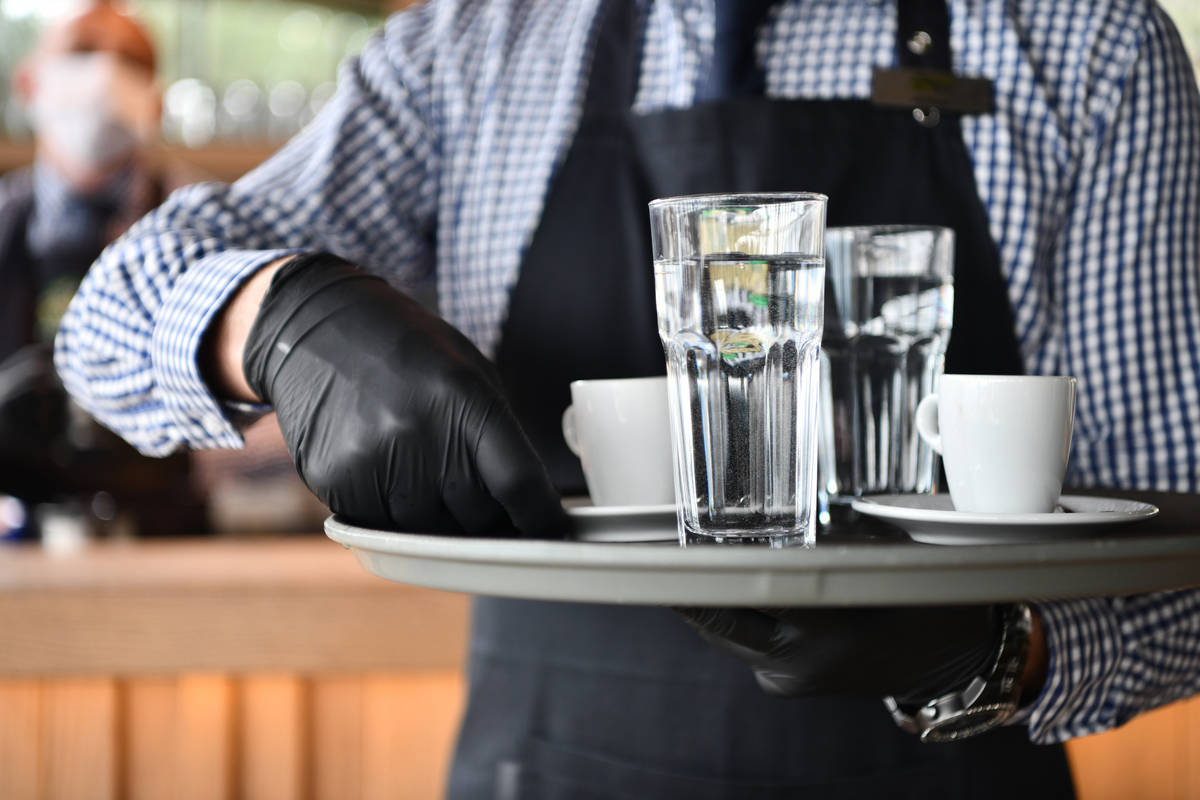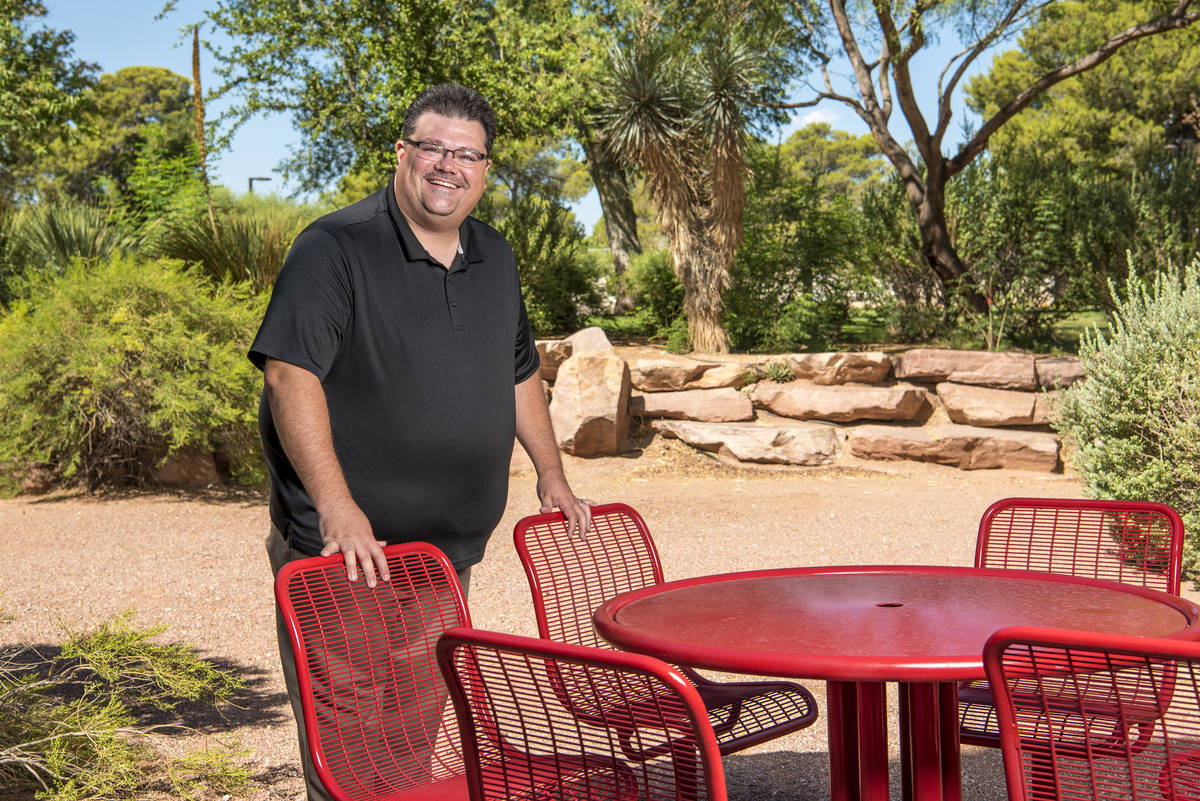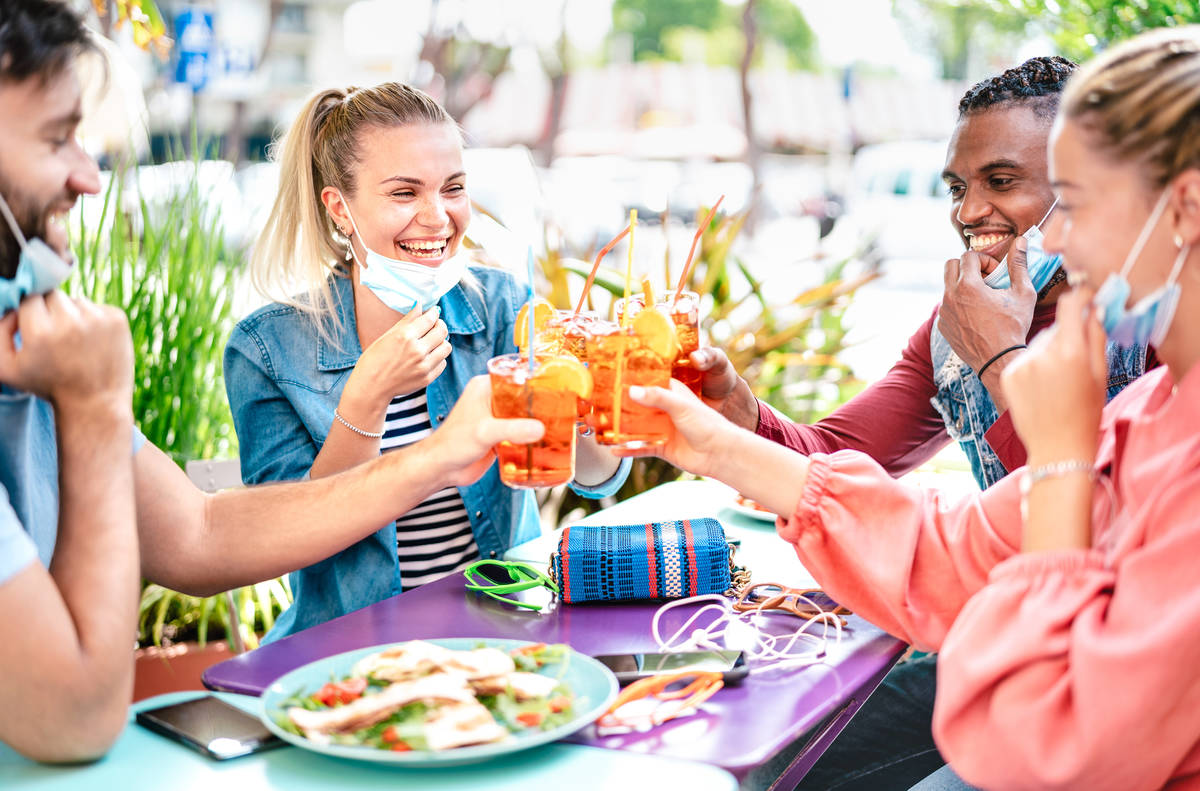Expert: Restaurant COVID-19 risk comes from your own table
For all those who think dining in restaurants is no more likely to spread COVID-19 than spending time in a busy supermarket or crowded airplane, Brian Labus has a simple message: It’s just not true.
Labus, an assistant professor in the Department of Epidemiology and Biostatistics, School of Public Health at UNLV, said the Centers for Disease Control and Prevention researched various environments and found that there was greater risk associated with restaurants and bars.
“Retail settings did not have elevated risk,” he said, “and this makes sense, as
people are not in close contact for extended periods of time while shopping, and all of them are required to wear a mask.”
Patrons are required to wear masks in restaurants and bars, too, but can remove them to eat and drink. And whether they are doing that indoors or outdoors, the social nature of these businesses also is a factor in the risk.
“You’re talking about people that are sitting around the same table,” he said. “Whether it’s indoors or outdoors, it’s not necessarily table to table. Your own table, that’s going to be your biggest risk.”
Relationships
Remember all those warnings about not welcoming extended family and friends into your home? The same principle applies to restaurants. Dining with those who live in your household is not the problem.
“That’s not necessarily going to be a risk,” Labus said. “We do often go out to meet other people. Restaurants have no way to control” whether the party is from one household or more. “That’s not something they can verify.”
And while some in the hospitality industry have complained that the state has made their employees a relatively low priority for vaccinations, Labus said that’s a separate issue.
“Even if the entire staff of the restaurant is vaccinated, there are going to still be restrictions,” he said. “It’s not employee-to-patron transmission; it’s really patrons’ transmissions among themselves.”
As for whether air-filtration systems are effective, Labus said it depends on the system and the layout of the establishment.
“There are different systems that can reduce the risk,” he said, “but it can never eliminate the risk. It comes down to the exact air flow in the restaurant.” Labus said national recommendations exist for monitoring and improving air flow in restaurants and other types of businesses.
Similarly, he said household room-sized filtration systems can help reduce risk as part of an overall plan, but personal, wearable devices may not.
Any mask better than none
“If somebody coughs or sneezes in your face, that’s not going to protect you,” Labus said, which brings us back to masks. Early recommendations were to wear two layers of closely woven fabric, but clear shields and knitted gaiters have proliferated. Labus said levels of protectiveness can vary, though no mask can provide 100 percent protection against transmission. Still, they’re important.
“Any mask is better than no mask,” he said.
And one more thing: Has Labus gone out to eat lately? No, not since before the pandemic started.
“It’s not something I’ve gone out and done,” he said. “I’ve picked up plenty of food and brought it home, but just the idea of sitting in close contact with other people is too much risk for me.”
When will he consider it safe?
“It depends where your numbers go in the community,” he said. “If you haven’t done it, now’s not the time to start doing it.
“When I’m fully vaccinated, I’m going to look at things differently, because the risk to me would be lower.”
Contact Heidi Knapp Rinella at hrinella@reviewjournal.com. Follow @HKRinella on Twitter.





















